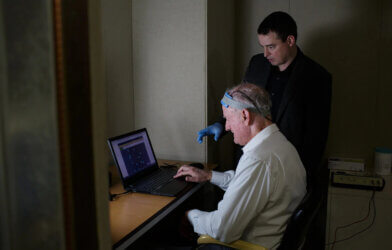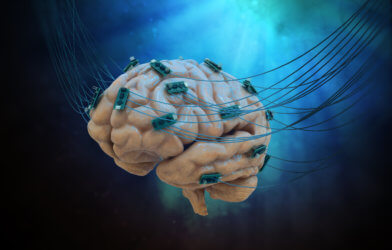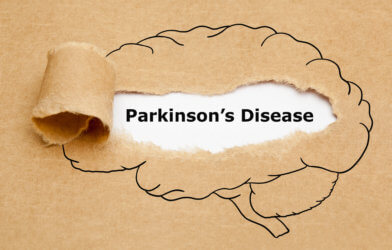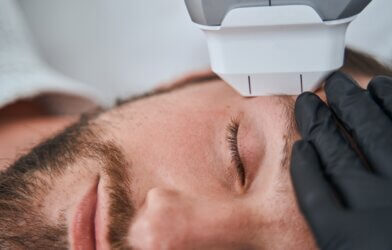A debilitating symptom of long COVID is brain fog which involves a wide range of cognitive impairments. There is currently no cure for long COVID-induced brain fog, but new research suggests one may be on the way. A recent study on two long-haulers with brain fog found that using alternating non-invasive brain stimulation (NIBS) with microcurrents for three to four days improved their cognition.
“Common symptoms include fatigue, shortness of breath, and cognitive dysfunction such as lower attention span and loss of short-term memory, all of which have a dramatic impact on everyday functioning,” said Bernhard A. Sabel, PhD, Director, Institute of Medical Psychology, Medical Faculty, Otto-von-Guericke University of Magdeburg in Germany in a press release. “There is currently no effective treatment that improves visual and cognitive impairments resulting from COVID-19 in such a short time.”
The researchers stimulated the brain of two females with long COVID who presented with vision problems and severe cognitive impairment that affected their ability to function. One patient was 40 years old and had developed symptoms after recovering from a COVID-19 infection. The other was 72 years old and developed brain fog after receiving the AstraZeneca vaccine.
Their cognitive levels were tested before and after the experiment. Brain stimulation with alternating currents ran in the eyes and brain for 45 minutes each day for 10 or 13 days.
Both patients showed an improvement in their cognitive symptoms after undergoing the NIBS treatment. Both women showed less fatigue, greater short-term memory, attention, and improved multitasking skills. The boost in cognition was significant enough to allow them to return to work.
Three to four days of brain stimulation partially reversed visual field loss as seen in lower amounts of blood vessel constriction, a potential cause behind the visual and cognitive decline. They also found that the brain stimulation lowered vascular dysregulation by normalizing vessel dynamics, with changes in the small venous and arterial microvessels.
“This study is important because about 20-30% of COVID-19 patients develop significant cognitive deficits long after the early symptoms of infection have subsided, and clinicians have had little to offer so far,” says study co-author Dr. Andreas Gonschorek, from the BG Clinic, Neurocenter in Hamburg, Germany. “But the risk is much higher in hospitalized COVID-19 patients, with about 60% experiencing cognitive decline within four months. They suffer often long-lasting impairment of speech production, learning, memory, and executive functions. And they can suffer abnormalities in mood such as depression, anhedonia, and lower stress resilience.”
Adds Sabel: “This is the first demonstration that cognitive impairment can be improved in such a brief period of time. We believe that our treatment could benefit patients with long-COVID worldwide to improve cognitive impairment.”
The study is recently published and available in the journal Restorative Neurology and Neuroscience.













Has anyone heard if this treatment will help long-covid patients with the smell and taste issues? I know there are folks who lose those functions and have been longer than 18 months without smell and taste.